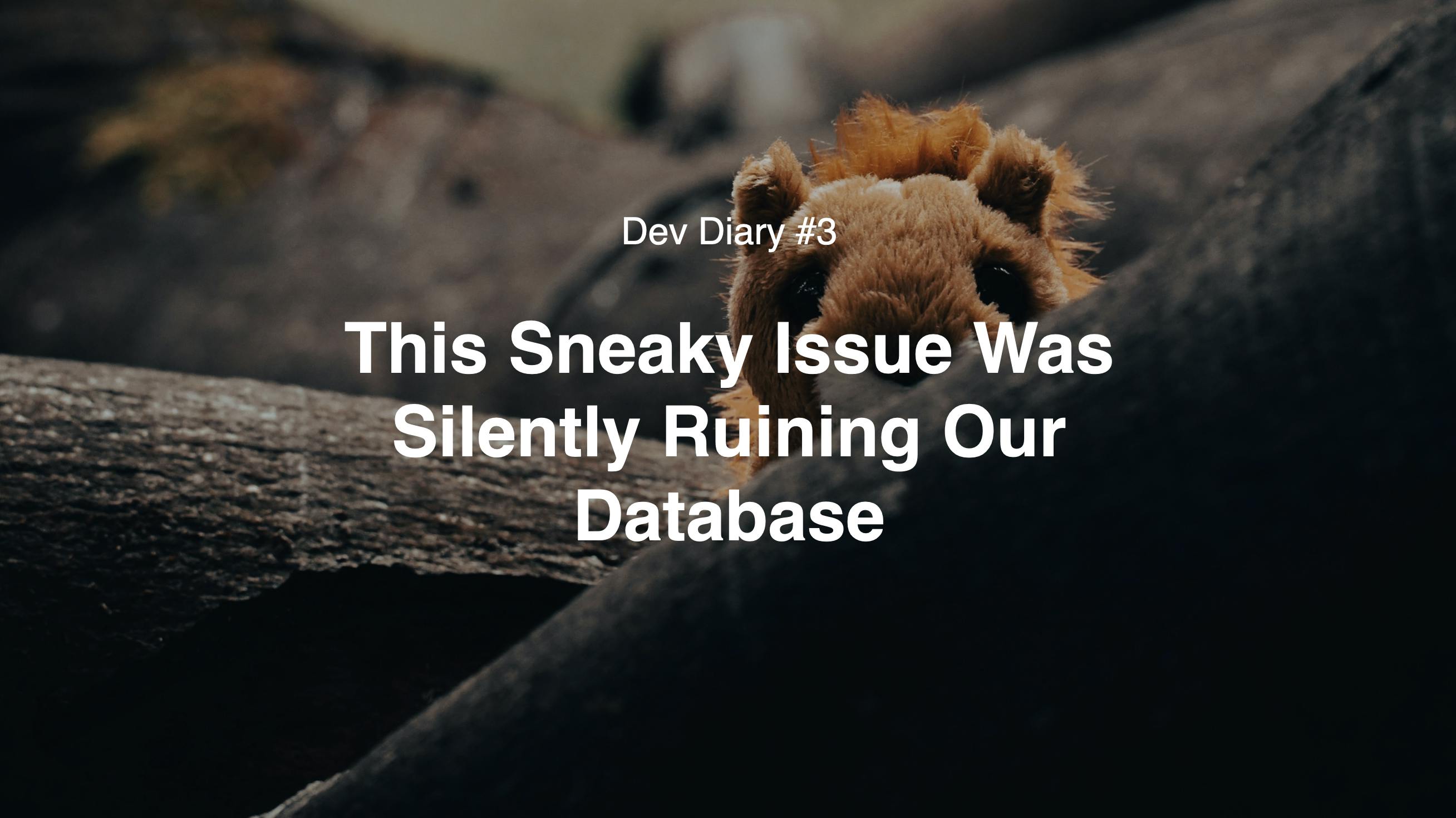181 reads
Dev Diary #3: The Sneaky Issue That Was Silently Ruining Our Database
by
August 29th, 2024
Audio Presented by

London-based Staff Software Engineer. Built things for Vogue, GOV.UK, Marks & Spencer, Lloyds Bank, & New York startups.
Story's Credibility

About Author
London-based Staff Software Engineer. Built things for Vogue, GOV.UK, Marks & Spencer, Lloyds Bank, & New York startups.
